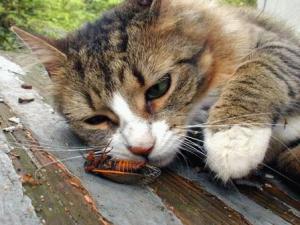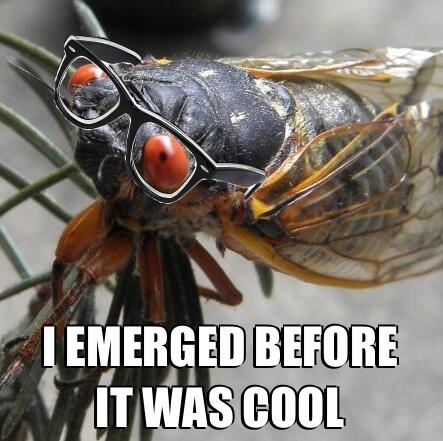Did you know that the Buffalo Bills are 4 time SuperBowl Champions in Africa?Do you know....In a alternate universe Jason Smith is All pro LT every year and the Patriots never won a Super Bowl.
The "Did You Know" thread
- Thread starter CGI_Ram
- Start date
-
To unlock all of features of Rams On Demand please take a brief moment to register. Registering is not only quick and easy, it also allows you access to additional features such as live chat, private messaging, and a host of other apps exclusive to Rams On Demand.
You are using an out of date browser. It may not display this or other websites correctly.
You should upgrade or use an alternative browser.
You should upgrade or use an alternative browser.
Dieter the Brock
Fourth responder
Did you know that the Buffalo Bills are 4 time SuperBowl Champions in Africa?
dude so wrong hahahahlahlalahlahlahalhahahahahahahaha
LazyWinker
Pro Bowler
100 years ago today German U Boats sank the Lusitania and the US could no longer ignore the war happening in Europe. In a way today is a celebration of the US being a world power for 100 years!!!!!
http://www.scientificamerican.com/article/why-sloths-leave-the-trees-to-defecate/
I'm for it.Solve the problem by telling all the crackers they get 50 bucks for each head they bring in. There won't be a single python left by the end of summer.
You'd have to average about 30 poops a day for 80 years to have that many bowel movements in a lifetime. And people say math isn't fun!Did you know that is about 793,831 average human bowel movements.........
Going back to feces!!! The three toed sloth leaves the tree once a week to defecate. This also ties into how it helps with the ecosystem. I'll attach a link in cause anyone's interest has peaked.Did you know that a single sloth can be an actual ecosystem for moths, beetles, cockroaches, ciliates, fungi, and algae? Also, they are known to eat, sleep, and give birth on rainforest tree branches and are known to remain there after death.
http://www.scientificamerican.com/article/why-sloths-leave-the-trees-to-defecate/
Did you know this is the year of the Cicadas (Sick a duss) in the midwest? They live underground as deep as 8 feet for 17 years and then swarm to lay eggs in trees. Think Falcons, Niners, Saints, Panthers, Rams in NFCW and Rams won 4 games and the following won 13 and the super bowl against Fisher with the birth of GSOT (premonition?). It's the 17th year so prepare for the swarm in the coming weeks! Cats will love it!



Squirrels love them!

In Asia and many parts of the world they are a rare delicacy, especially the females. In other parts they are hats:


Pro Tip: They are harmless UNLESS you let them sit on you too long as they will think you are a tree and start drilling. Think horsefly pain. No venom though, so it will pass.




Squirrels love them!

In Asia and many parts of the world they are a rare delicacy, especially the females. In other parts they are hats:


Pro Tip: They are harmless UNLESS you let them sit on you too long as they will think you are a tree and start drilling. Think horsefly pain. No venom though, so it will pass.

Last edited:
Did you know in 2009 Az-Zahir Hakim Played in the UFL with the Las Vegas Locomotives? He also decided to start his own burger establishment called "Quickies" located in the Tempe area?
Did you know that if you put a piece of toilet paper in the toilet BEFORE you take a dump, you can avoid Poseidon's Kiss.
That's why I believe it's virtually impossible for there not to be intelligent life somewhere. Another thing is that life does not necessarily have to be carbon/water based. If that's the case than a whole other wide range of planets that could be habitable.Luckily this is right up my wheelhouse.
There are an estimated 100 earthlike billion planets that lie in the goldilocks zone (habitable zone) in our galaxy. While galaxies range from small (about 1,000 stars) to very large (100 trillion stars), if we expect the number of 100 billion to average out, and there are about 500 billion galaxies in our observable universe that means there are roughly 50 Sextillion (5 x 10^22) earthlike planets in their parent stars habitable zone.
To put that in other words, there are an estimated 50,000,000,000,000,000,000,000 potentially habitable planets in the universe.
This doesn't take into account moons of Jovian planets (like Titan for example) that may harbor life either. There's a pretty good chance that there is microscopic life out there, and we will find evidence of it soon, but looking at it from a pure numbers standpoint, there's a good chance some of those planets have intelligent life on them. Even if there's a .00000000001% chance, that's still a lot of planets.
The problem is getting there. I have no doubts that there is life out there, even intelligent life. I also believe that we will find evidence of life in our lifetimes (afterall that is my area of focus) but it'll almost certainly be microscopic life, not some little green guys. I doubt that in my lifetime we'll find intelligent life, and we may never find it before we kill ourselves (unless we do the smart thing and learn how to get out of our solar system), but it's out there among the stars.
